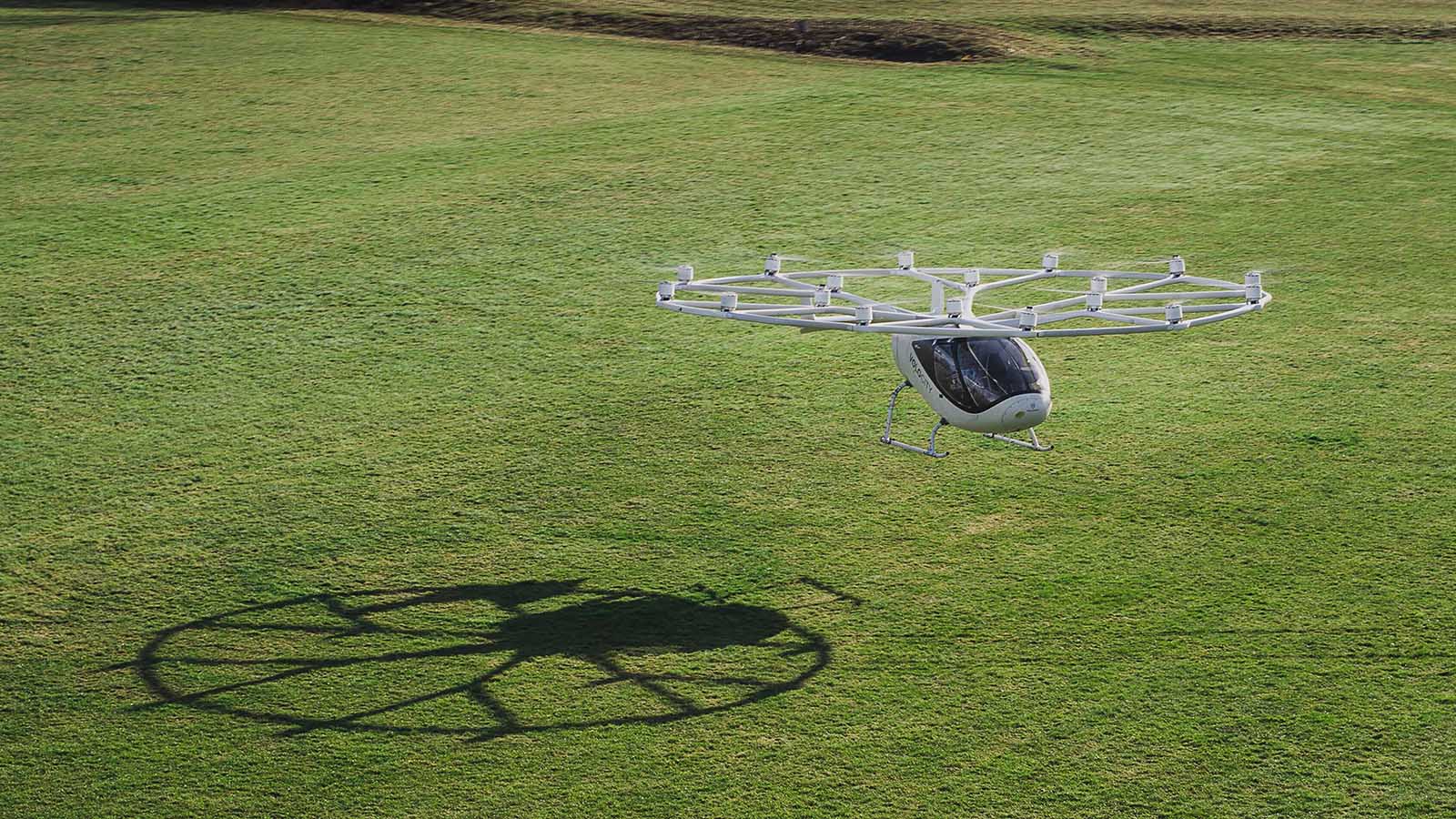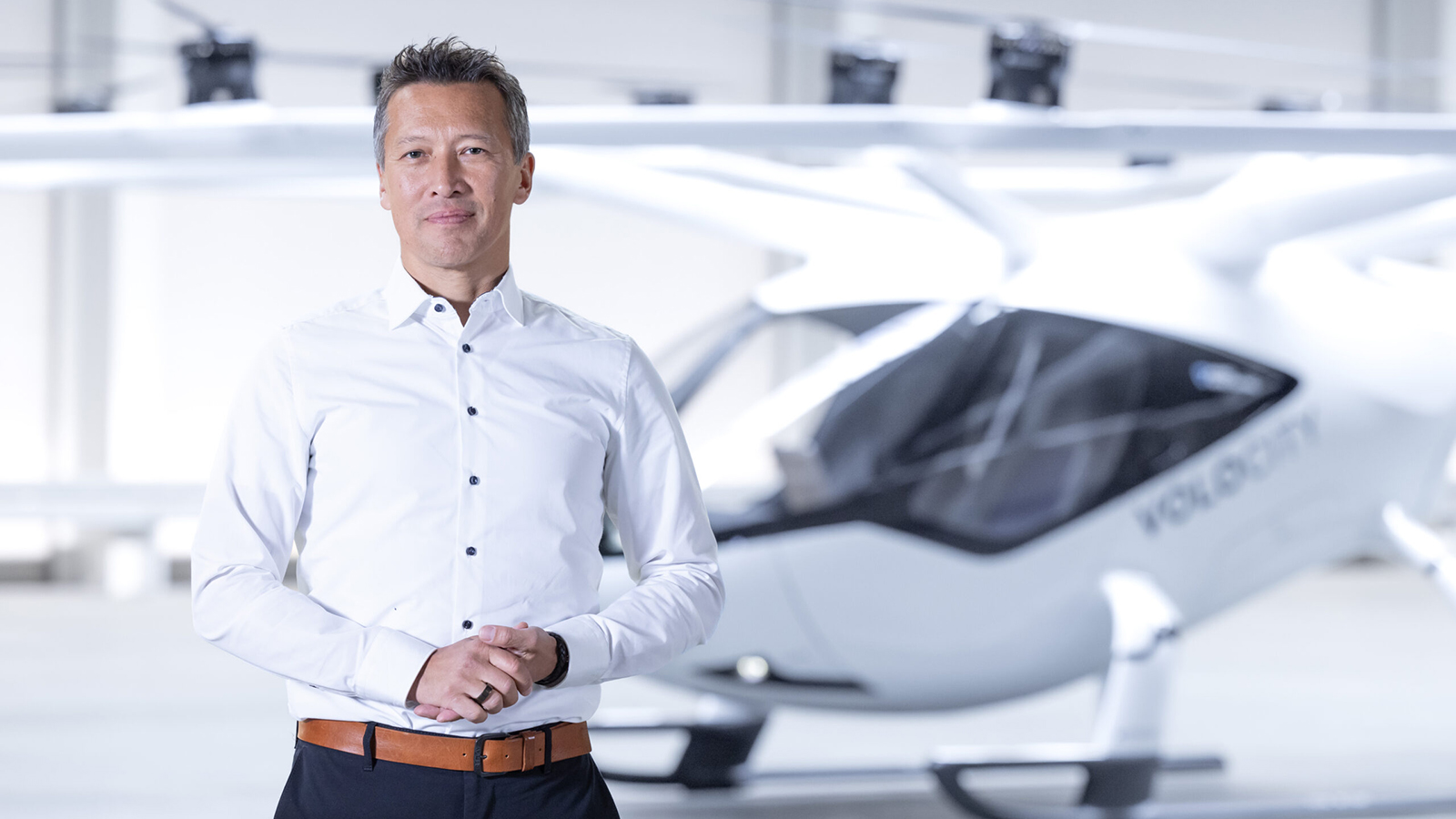Stay Up to Date
Submit your email address to receive the latest industry and Aerospace America news.
As the new chief at Volocopter, Dirk Hoke brings industry experience and determination to fly at the Paris Olympics
The new CEO of German electric aircraft developer Volocopter has embraced the company’s goal of flying at the Paris 2024 Summer Olympics, but stopped short of predicting that its VoloCity electric rotorcraft will be ready.
German industrial executive Dirk Hoke, 53, took up leadership of the air taxi company on Sept. 2, having departed a few months earlier as the CEO of Airbus Defense and Space based near Munich. During a video interview with me, Hoke reflected on the company’s goal of being ready for the Olympics in two years.
“I can tell you everyone at Volocopter stands up in the morning, fully energized and motivated to drive toward that goal,” Hoke said. “I have to finish all my analytics to tell you how reliably this can be achieved, so this is too early to give you my five cents on it, but this is the target, and we will drive for it.”
Hoke was a CEO and member of the executive council at Airbus for over five years. For 10 years before that, he was CEO at the Siemens Large Drives business, which produces electrical drive systems for ships, mines and rolling mills.
Volocopter is one of several advanced air mobility companies participating in a test flight program aimed at preparing air taxi services potentially for spectators and athletes during the Olympics.
Others involved in the testing program include California-based Joby Aviation, U.K.-based Vertical Aerospace, German company Lilium and Ascendance Flight Technologies, which is based in Toulouse, France, nearly 700 kilometers south of Paris.
Volocopter executives have made the Olympics a very public goal for the company’s 700 employees.
Hoke said the Olympics goal, and Volocopter’s early commitment to work closely with regulators at the European Union Aviation Safety Agency, has allowed the company to outpace the competition in the industry.
“I still believe that Volocopter is ahead of the crowd in this certification process, so it’s definitely a target to achieve type certification in 2024 and to fly during the French Olympics,” he said.
But he adds quickly that he welcomes competition. “I believe that we all work together toward the same goal, that we are not really competitors because it’s about opening a totally new market, adding a new modality to the way we all can go from point A to B.”
Paris officials have outlined the intended routes for air taxis during the Olympics. But when he’s asked if such flights will be purely demonstrations or available to athletes or tourists, Hoke said it’s still too early to determine what level of service will be achievable with Volocopter’s two-passenger aircraft.
Two routes are planned: between Paris-Charles de Gaulle and Le Bourget airports and the city itself; and between Saint-Cyr Aérodrome near Versailles and Paris-Issy-les-Moulineaux heliport.
“You see, we have a timeline that is very challenging to certify and get ready for flight. The Olympics in 2024 is a challenge in itself,” he said. “It’s a challenge on competencies. It’s a challenge on resources.”
He adds that he is still analyzing timelines and resources “to understand what has been committed and where we stand.”
But he said the company’s team of engineers and employees are bullish on flying for the Olympics.
“This is, I think, what keeps us up at night, what the people are energized and motivated to work for and I’m totally excited to be part of the team now,” he said.
Get the latest news about advanced air mobility delivered to your inbox every two weeks.
About paul brinkmann
Paul covers advanced air mobility, space launches and more for our website and the quarterly magazine. Paul joined us in 2022 and is based near Kennedy Space Center in Florida. He previously covered aerospace for United Press International and the Orlando Sentinel.
Related Posts
Stay Up to Date
Submit your email address to receive the latest industry and Aerospace America news.





